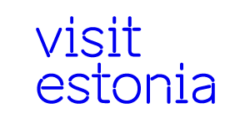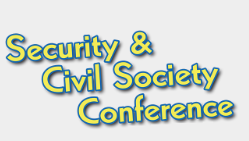SECURITY & CIVIL SOCIETY CONFERENCE 2023
The Security & Civil Society conference undertitel “Reflections on Security: International Community, CSOs and their contribution for a more secure and sustainable Europe” (IV edition of annual international conference (with the previous names “UN75 Global Conversation 2020” in Tallinn, “Global Conversation 2021” in Narva and “Civil Society Ideas for the sustainable and secure Future of Europe 2022”, in Tallinn, Estonia) will bring together interested individuals, representatives from public, private, and civil society sectors whose work is connected directly or indirectly with European Security and Civil Society crossrelated themes under United Nations Sustainable Development Goals (UN SDG-s).
The general goal of the conference is to explore possible solutions for stabilising European security, improving people’s cognitive security and supporting the achievement of the UN SDGs in the area of the green revolution, security and digital cooperation by deepen the participants’ awareness on key related issues in time of global change:
- European Security matters
- UN Sustainable goals
- Green Growth
- Digital Society
The main goal of the conference, with the support of renowned experts and speakers in the fields, is to try to adequately understand and decipher today’s exceptionally effective and large tangle of crises – to better understand the causes of its emergence and effects for society, which have already arisen and provide explanations for the tense situations that will predictably arise by increasing the awareness of civil society and cooperation with the state and private sectors. If necessary, objectively (condemn) and constructively criticize what is happening unfairly. At the same time, to pass on enough discouragement to encourage the people of Europe and Estonia and to calm the society, which would be expressed in straightforward messages that carry the security of the society and actions that protect peace. At the end of the conference, a declaration of the conference will be prepared with proposals for a specific solution for the civil society sector on how to cope and promote their work during the crisis. Key foreign and security policy issues will be discussed mostly from the perspective of the Euro-Mediterranean region, Northern and Eastern parts of Europe.
Additional objectives include:
- To reach conclusions on how better to promote and spread knowledge and awareness of Peace Building provess of the UN’s Sustainable Development Goals, Democracy, Human Rights instruments, and international legal frameworks;
- To explore how to use digital technologies to promote and engage communities and individuals to help achieve the UN SDGs and human rights protections;
- To share practical skills on how to utilize the existing international peace building dimplomacy and digital instruments to improve security policies, green energy and climate change issues, sustainability of society, and develop better tools for good governance and cooperation.
- To further development of a network of stakeholders, government representatives, and other relevant organizations to implement the outputs of the civil society network “Green Habito” peace initiative in terms of the UN75 declaration implementation plan; and Civil Society Appeal presented on the previous conference.
As a result, the Tallinn Declaration (a starting place where development of declaration began) will be finalized and approved, together with local Citizens’ action plans, which will be submitted to the UN General Assembly, Nordic council, European Commission, various international and governmental organizations, and the media.
The international event is open to all interested individuals, researchers, representatives from public, private and civil society sectors, security and military experts, including civil society & youth organizations, educational institutions, energy industry leaders, academics, researchers, legislators, planners and policy specialists in all relevant areas, representatives from UN organizations, intergovernmental organizations, governments, ministries or departments, international donors, national and regional human rights institutions.
 This event is made possible with the possible help of funding from the European Regional Development Fund through Enterprise Estonia with 30 000 euros.
This event is made possible with the possible help of funding from the European Regional Development Fund through Enterprise Estonia with 30 000 euros.
Organizing the event would not be possible without institutional and additional financial support from the Britsh Council, Estonian National Foundation of Civil Society, Nordic Council Of Ministers’ Estonian Office Support and content support of the European Commission.



In addition, we have received invaluable assistance from the Nordic Council and its office in Estonia, Council of Europe, Estonian Ministry of Foreign Affairs, Estonian Representation of European Commission, Estonian State Chancellery, UN Association of Finland, and many other stakeholders. Without their help, the conference discussions, social and cultural programs would not be the same. Concerning the practical matters, we are grateful to the Vaba Lava Theather Centre and hosting hotels Meresuu Spa Hotell and Narva Hotell.
Special focus in fram of this conferencce will be dedicated to colloboration between Nordic and Baltic regions in frame of the implementation of Nordic-Baltic cooperation initiatives what are dedicated to achive goals stated in Agenda 2030 and Nordic vision of it Generation 2030 and became a green socially sustainable and digitally integrated region by 2030 as a good example of national and international cooperation and support Ukainian society in time of war, conflicts and crisses.
During the conference, we will also cooperate with a selected number of small Estonian entrepreneurs who offer products inspired by the Estonian environment and culture during an afternoon at our conference venue. While planning conference tourism tours, we have laid special emphasis on environment-oriented cultural tourism, showcasing Estonia culture as a destination for tourists with a deep interest in the environmental aspects of culture and cultural research.
As a result of these side events, we hope to give our delegates a better understanding of the variety that Estonia has to offer as a country situated at the intersection of various cultural and natural border areas.

Get acquainted with Estonia as a positively surprising destination
for cultural experiences at www.VisitEstonia.com.









